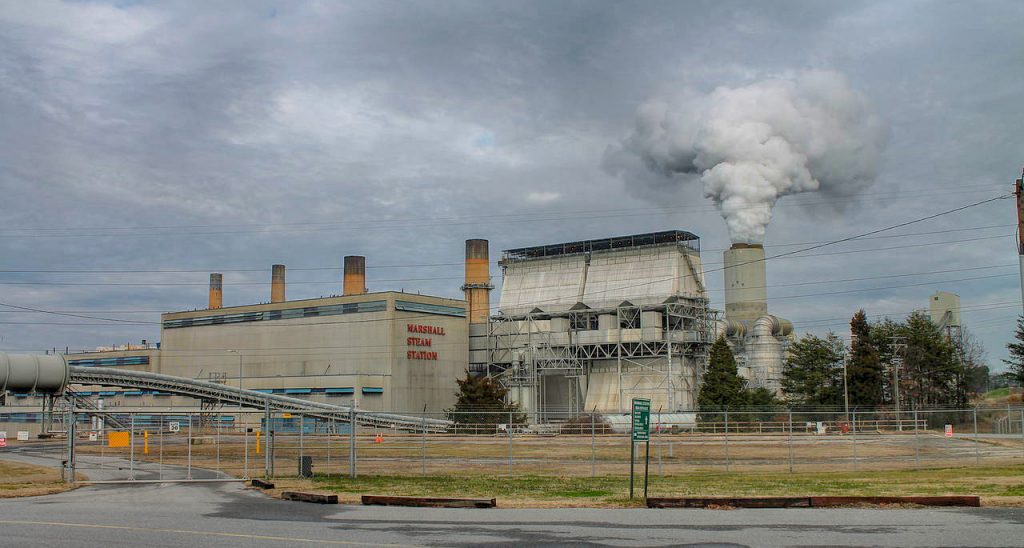Cleaning Up Coal Ash
For well over a century, power plants across the country have burned coal to generate electricity. And for just as long, leftover coal ash has been dumped in open, unlined pits near the power plant, usually located on a river or lake. Every year, U.S. power plants produce 130 million tons of coal ash, which is the second largest waste stream in the country after municipal garbage.
Coal ash concentrates the toxic heavy metals found in coal, including arsenic, mercury, lead and selenium. Stored in unlined, wet impoundments, coal ash has been leaking these toxics into our groundwater and surface waters for years. Sometimes these impoundments collapse — with disastrous results.
Yet government regulations for coal ash management are either non-existent or sparse, and there is little enforcement of the regulations that do exist. In North Carolina, this lack of oversight — and the complicity between state regulators, elected officials and Duke Energy — came to a boiling point in February 2014 when one of Duke’s coal ash impoundments spilled 39 million tons of ash into the Dan River.
Citizens living near North Carolina’s 33 coal ash impoundments — all of which have leaked — have fought for transparency from Duke and the state, and for cleanup of the pollution that threatens their property value, health and family. Their actions forced this issue into the headlines of news networks and to the forefront of environmental justice conversations in the United States.
Appalachian Voices stood with these communities as we worked for years to compel Duke Energy and the N.C. Department of Environmental Quality to excavate coal ash from all the North Carolina sites and dispose of it either in lined, dry landfills, away from waterways, or by recycling it for concrete or other uses, provided it’s done in a manner that protects public health and the environment.
On Jan. 2, 2020, North Carolina announced a historic settlement with one of the state’s most powerful corporations and polluters, Duke Energy. The settlement requires Duke to move nearly 80 million tons of toxic coal ash at six of its power plants to properly lined landfills onsite or recycle it.

Learn information about specific coal ash impoundments in the South, including health threats and safety ratings:
Additional Resources
Fact sheets, videos, links to academic research, and more
Sign Up to Act
Help us protect the health of our communities and waterways.
Latest News
Scorecards rate rural electric cooperatives in Tennessee
Today, advocacy organizations across seven southeastern states released scorecards that examine the policies and programs of the region’s rural electric cooperatives across a number of areas, including governance, transparency, energy efficiency, member access to renewable energy and other factors. Though no co-op across seven states scored more than 65 out of 100 total points, co-ops in Tennessee achieved an average score of 28 points.
Scorecards rate rural electric cooperatives in North Carolina
Today, Appalachian Voices released scorecards examining how electric cooperatives in North Carolina measured up across a number of areas, including governance, transparency, energy efficiency, member access to clean energy and other factors. The results showed that the majority of the 26 co-ops in North Carolina impose significant barriers for customer-members to participate in the democratic governance of their co-ops, while only a few offer services or supportive policies to help members lower their electric bills.
Research reveals gaps in Virginia’s utility shutoff policies
FOR IMMEDIATE RELEASE November 14, 2022 CONTACT Emily…
Southeast Regional Scorecard release will grade rural electric cooperatives on democratic governance, clean energy policy and more
On Nov. 16, organizations from Alabama, Georgia, Kentucky, Mississippi, North Carolina, Tennessee and Virginia will release scorecards examining how electric cooperatives in their states measured up across a number of areas.
New film highlights Southwest Virginia change-makers
FOR IMMEDIATE RELEASE Nov. 9, 2022 CONTACT: Jan…
The choice for North Carolina’s energy future: high rates or renewable energy?
I live in Duke Energy Progress territory, covering the eastern part of North Carolina and South Carolina along with a little patch in western North Carolina including Buncombe County. Soon, Duke Energy Progress plans to raise our rates, and I’m not sure it’s justified.











